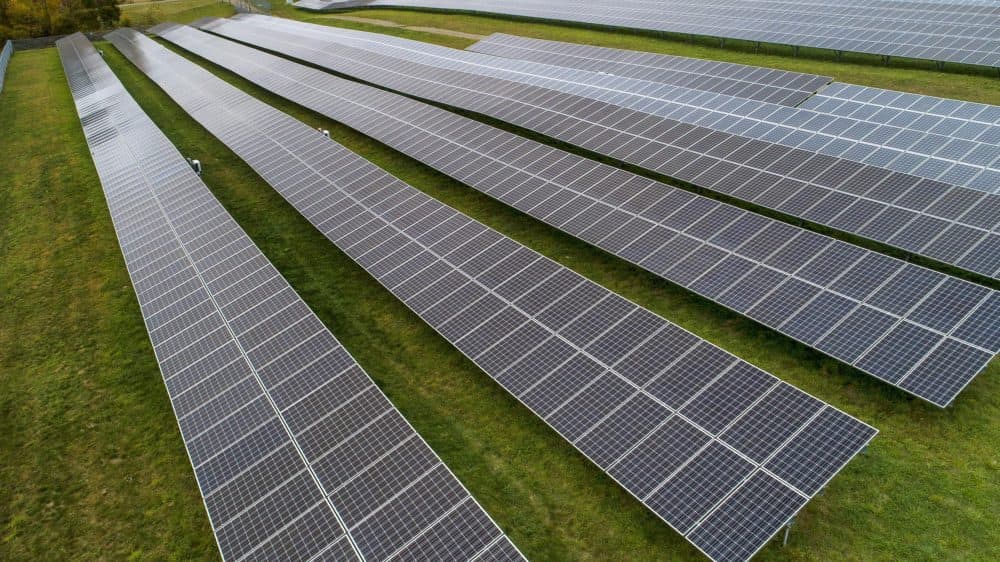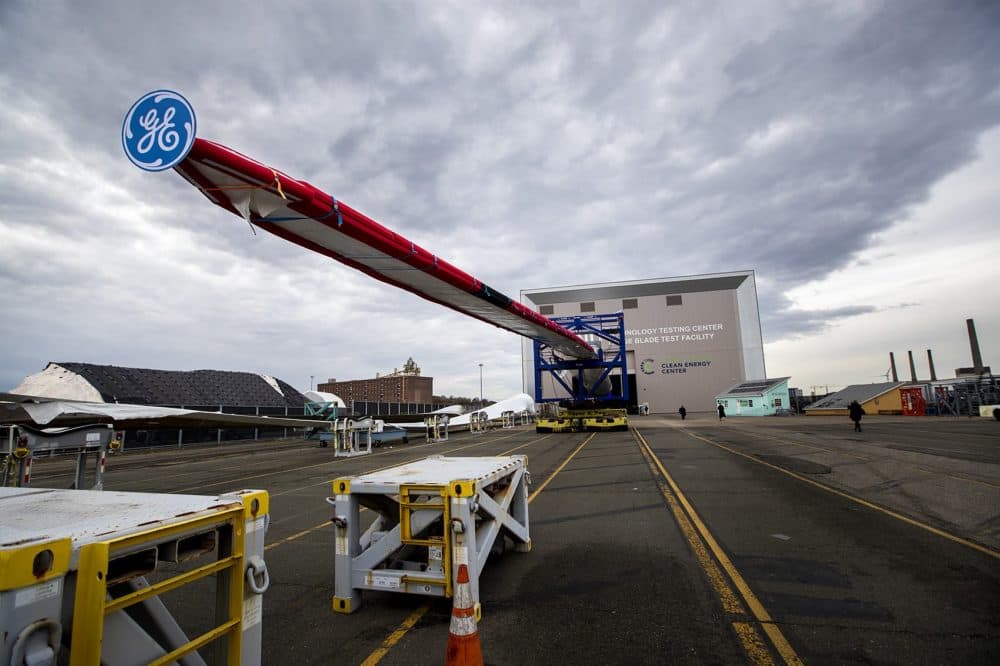Advertisement
8 Ways The New Climate Bill Affects You, Your Washing Machine And Our Climate Goals

Gov. Charlie Baker has 10 days to decide whether to sign — or kill — a massive climate bill.
The legislation, which the House and Senate approved Monday, represents the state’s first big update to the landmark 2008 Global Warming Solutions Act. It writes into law the ambitious goal of reducing emissions to net-zero by 2050, and could radically transform the energy sector, building codes, transportation and more.
From geothermal energy to lightbulbs, the bill covers a lot of ground, but here’s what you need to know — in plain English — about how it will affect you, if Baker signs it:
1. More clean energy will power your home.
In the future, when you flip on a light switch or blow dry your hair, more of the energy you use will come from renewables like solar and wind instead of natural gas and oil. The bill does this in a couple ways: by telling utilities to buy more renewable energy every year, requiring the state buy 5,600 megawatts of offshore wind and making it easier for lower income communities and some nonprofits and businesses to get solar panels. (More on that solar stuff later.)
It's hard to know exactly what this will mean for your energy bill, but we do know that it will reduce pollution, which improves public health and saves us all money.
2. Your dishwasher will get a climate makeover.
Massachusetts will adopt California’s strong efficiency standards for household appliances. Don’t worry, you won’t have to get rid of your current appliances, but when the time comes to buy new ones, you’ll have to purchase higher efficiency models. The energy-saver appliances may cost more up front (though it's not clear that they will) but will lower your energy bills in the long run. Adopting this measure could save Massachusetts residents $145 million in electricity bills a year by 2025, according to the nonprofit Environment Massachusetts.
And if you’re into some friendly state-to-state competition ... passing this bill should knock California from its position as the most efficient state in the country and allow Massachusetts to retake the lead. We’ll be number one again!
3. Coming soon to a driveway near you: more electric cars.
While the bill doesn’t explicitly make it easier or cheaper for you to get an electric vehicle, advocates say it lays the groundwork for an EV-friendly future. By requiring the governor to set targets for the number of EVs we need to have on the road, the bill forces the state to find ways to meet that goal — i.e., rebates or other incentive programs to get those cars in your driveway.
The bill also requires targets for charging stations. Right now, many people suffer from "range anxiety" — the fear that if they buy an EV, there won't be enough places to charge it. So building more charging stations should help make EVs more practical and desirable.

4. Solar panels for everyone! Well, not exactly, but getting closer...
The bill doesn’t make solar panels cheaper for you to buy, but it does a few critical things to “grease the skids and unlock more solar potential in the Commonwealth,” says solar advocate Stephan Roundtree. The bill creates more ways for people to participate in community solar projects, establishes a new grant program to help certain nonprofits put up solar panels and makes it easier for businesses or buildings with a lot of solar panels to sell their excess energy back to the grid.
And, after facing criticism that the state’s solar incentive program, SMART, failed to get panels on roofs in lower-income and minority communities, legislators included a section in the bill forcing SMART to make these communities a priority.
5. Your town has a new way to make buildings clean and green. (And it has a fun name!)
Buildings are one of the biggest sources of greenhouse gas emissions in Massachusetts, and this bill allows municipalities to decide how climate friendly new or renovated buildings must be. It does this by expanding the so-called “stretch code," which allows cities and towns to set stricter building emissions standards than the state’s. If the bill passes, the stretch code will stretch all the way to net zero, meaning towns can mandate that buildings be carbon neutral.
6. It should be easier to get training for green energy jobs.
With so much clean energy coming down the pike, the bill includes extra money for the Massachusetts Clean Energy Center, a quasi-public economic development agency. MassCEC is supposed to spend $12 million more each year on clean energy workforce development for minority-owned and women-owned small businesses, environmental justice communities and fossil fuel workers. While some advocates were hoping to see more money for the agency, they are happy about the additional opportunities to train people to build or operate wind turbines, install solar panels, weatherize buildings or do other jobs in the green economy.

7. Legislators say utilities (and their state regulator) need to wake up to climate change, and this bill's gonna help them do it.
The bill encourages big utilities like National Grid and Eversource to dump fossil fuels and move to renewables, which will be key to achieving our climate goals. One way the bill does this is by making it easier for utilities to experiment with innovative clean energy technologies — a pilot program to install geothermal heat pumps, for instance.
The bill also takes aim at the Department of Public Utilities, ordering the regulatory agency to add emissions reductions to its list of priorities. This means that the powerful DPU will now have to prioritize climate change concerns right along with public safety and cost. It sounds kinda wonky, but it's also a huge win for environmentalists.
8. Environmental justice communities get more protections and a bigger voice.
For the first time in Massachusetts history, a number of important environmental justice (EJ) definitions and processes will be codified into state law. The bill defines EJ communities based on race, income, and language-proficiency criteria, and spells out how the state and/or a project developer must give these communities a meaningful role in decision-making about new developments, energy infrastructure or other projects near the neighborhood. (Like, say, the East Boston substation or the Weymouth compressor.) Critically, it also calls for the “equitable distribution of energy and environmental benefits and environmental burden.”
There is, however, one thing that EJ advocates were hoping to see in the final bill that didn't make it in: a requirement that something called “cumulative impact” be considered. Right now, when a state agency weighs whether to approve a project like a pipeline or power plant, it looks at whether the pollution from that specific project would exceed state law, but it doesn’t necessarily account for background pollution. Advocates say state regulators should consider the total pollution in an area to prevent certain communities from bearing a disproportionate burden.
So what happens next?
The legislative session ended Tuesday at midnight, but Baker has ten days to review the bill. He can sign it, veto it, or do nothing, which is a de facto, or “pocket” veto. If Baker vetoes it, lawmakers will have to start the process over in the new legislative session.
This segment aired on January 5, 2021.
